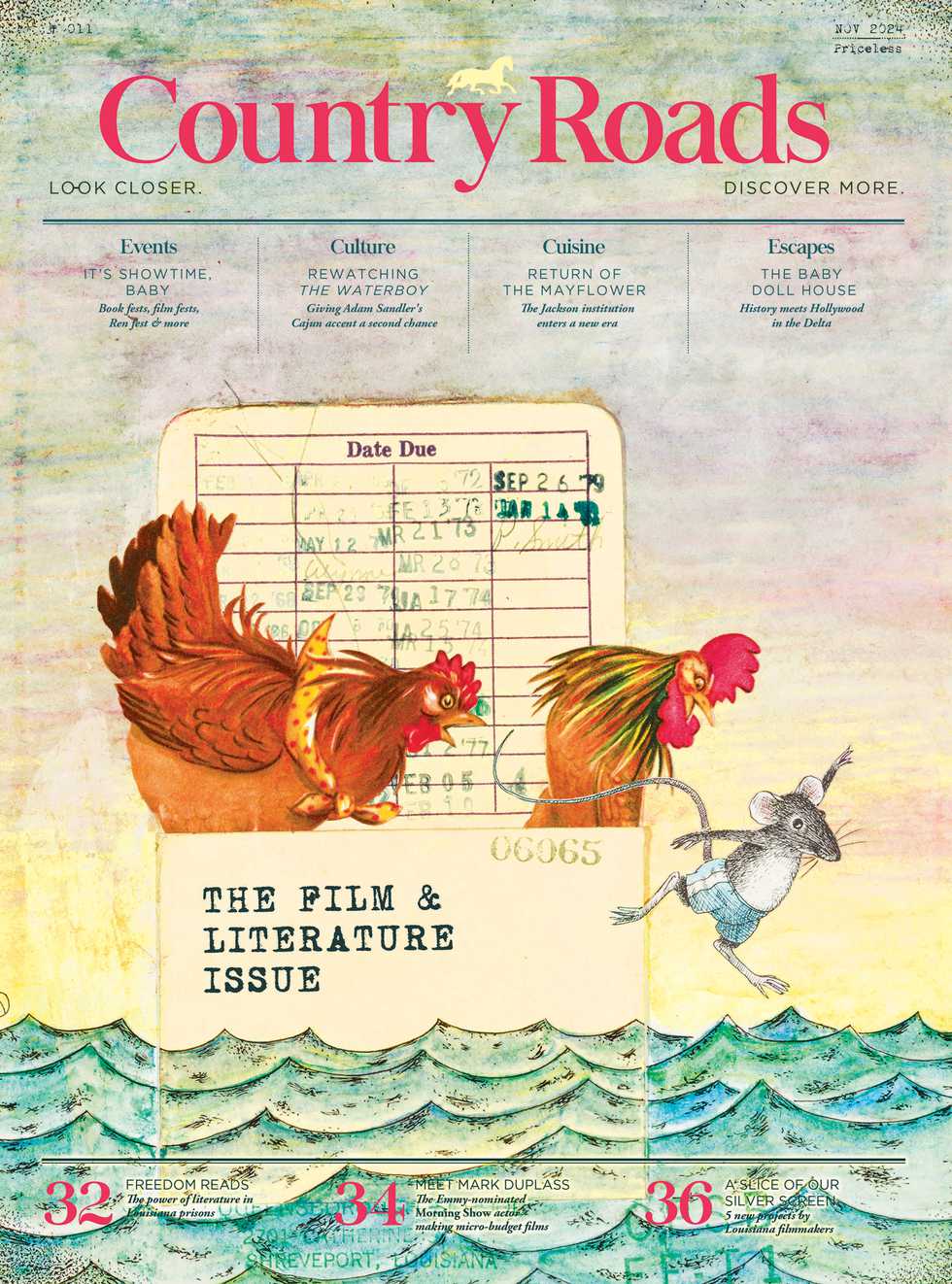Blues are undoubtedly his forte, but Chris Thomas King is an artist whose talents range across many genres –– he is a Grammy Award-winning blues musician and artist, producer, composer, actor; and now an author, too. Excelling within the genre of blues, though, has been a family trait: King, a Baton Rouge native, is the son of local blues legend, the late Tabby Thomas, who owned and operated the iconic juke joint Tabby’s Blues Box and Heritage Hall.
Coming of age in his father’s blues club (King began playing the guitar at age 7 with his father), he was surrounded by the era’s finest musicians, and began touring, while still just a teenager, with Buddy Guy and B.B. King. His immense musical talent caught the eye of a folklorist from the Smithsonian Institute in the late 1970s, and through folk label Arhoolie Records, King was positioned as a successor to blues-folk icons like Jelly Roll Morton, Muddy Waters, and Lead Belly. In the 1990s, he relocated to Europe, where he produced a series of original recordings which wowed Parisian music critics.
Upon returning to New Orleans, King entered the world of films. His cinema credits include playing Tommy Johnson, a Delta blues musician, in the Coen brothers film O Brother Where Are Thou, and co-starring in the Oscar-winning film Ray, for which he also scored the film’s soundtrack with Ray Charles.
Incorporating influences from hip-hop and even country music into his original work, King’s creative fusion has been recognized by fans spanning the globe. A remarkably successful blues musician –– in the United States, he has sold over ten million records –– King also has his own recording studio, 21st Century Blues Studio (through which he has produced original music and film scores). His numerous musical accolades include winning a Grammy for Album of the Year and a CMA (Country Music Association) Award for Album of the Year.
In June of 2021, King’s book The Blues: The Authentic Narrative of My Music and Culture was released. Through extensive research, the author presents a compelling narrative of blues history, arguing that the genre’s origins can be traced to cosmopolitan beginnings in New Orleans, not the rural Mississippi Delta, to which it has long been attributed.


